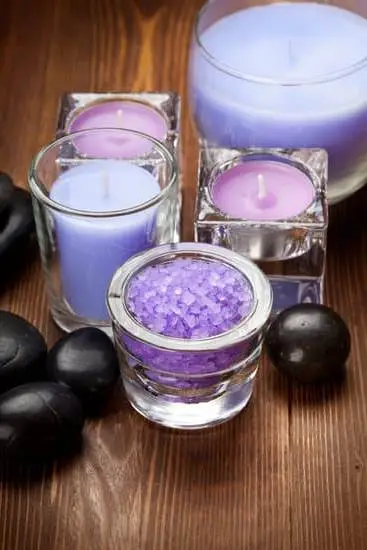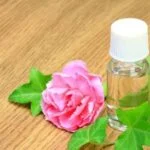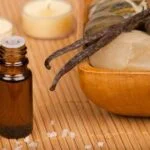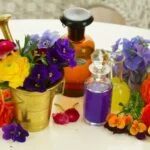Aromatherapy has been used for centuries as a natural healing practice, but does it really work? This article aims to delve into the world of aromatherapy and explore its history, the science behind it, common uses, and its benefits for mental and physical health.
Aromatherapy dates back thousands of years to ancient civilizations such as the Egyptians, Greeks, and Chinese, who used essential oils for their therapeutic properties. The practice has evolved over time and is now widely utilized in alternative medicine and holistic wellness. But what exactly is the science behind aromatherapy and how do essential oils work their magic?
In this section, we will explore the origins of aromatherapy and its historical significance, laying the foundation for understanding how this ancient practice has gained popularity in modern times. Additionally, we will examine the potential benefits of aromatherapy for both mental and physical well-being, shedding light on whether or not aromatherapy truly lives up to its claims.
The Science Behind Aromatherapy
Aromatherapy has been used for centuries as a holistic healing treatment, but how exactly do essential oils work to improve our well-being? The science behind aromatherapy lies in the powerful compounds found in essential oils, which can have a direct impact on our physical and mental health.
Chemical Properties of Essential Oils
Essential oils are derived from various plant sources such as flowers, leaves, bark, and roots. These oils contain unique chemical compounds that give them their distinct aromas and therapeutic properties. For example, lavender oil contains linalool and linalyl acetate, which are known for their calming and stress-relieving effects. When these compounds are inhaled or absorbed through the skin, they can interact with our body’s chemistry to produce positive physiological responses.
Impact on the Nervous System
One of the key ways that essential oils work is by interacting with the limbic system in the brain, which is responsible for emotions, memory, and arousal. When we inhale the aroma of essential oils, they can trigger specific emotional and physiological responses by directly impacting this region of the brain. For example, peppermint oil has been shown to have a stimulating effect when inhaled, while chamomile oil can promote relaxation and reduce anxiety.
Therapeutic Benefits
The therapeutic benefits of essential oils extend beyond just their pleasant scents. In addition to their impact on emotions and mood, essential oils also possess anti-inflammatory, analgesic, antimicrobial, and antioxidant properties.
This means that they can be used to alleviate pain, reduce inflammation, fight off infections, and protect against oxidative stress. By understanding the chemical composition of different essential oils and how they affect our bodies at a molecular level, we can better appreciate the science behind why aromatherapy works.
Common Uses of Aromatherapy
Stress Reduction
One of the most common uses of aromatherapy is for stress reduction. Certain essential oils, such as lavender, chamomile, and bergamot, have been found to have calming and relaxing properties when inhaled or used in massage oils.
The scent of these essential oils can help to reduce feelings of anxiety and promote a sense of overall well-being. Whether used in a diffuser or diluted in a carrier oil for topical application, these essential oils can be beneficial for those seeking natural ways to manage their stress levels.
Improving Sleep Quality
Another common use of aromatherapy is to improve sleep quality. Many people struggle with insomnia or other sleep disorders, and turning to essential oils like lavender, cedarwood, and ylang-ylang can provide relief.
These essential oils have sedative effects that can help calm the mind and body, making it easier to fall asleep and stay asleep throughout the night. By incorporating aromatherapy into a bedtime routine through methods such as diffusion or using a few drops on a pillow or bedsheet, individuals may find themselves experiencing better sleep quality.
Mood Enhancement
Aromatherapy is also commonly used for mood enhancement. Essential oils like citrus scents (e.g. lemon, orange) and peppermint are known for their uplifting properties that can help elevate one’s mood and provide an energy boost.
Whether used through inhalation or applied topically, these essential oils can help combat feelings of fatigue or low energy levels. This use of aromatherapy can be particularly helpful during times of stress or when one needs an emotional pick-me-up. Overall, the common uses outlined here demonstrate just how effective aromatherapy can be in improving mental health and emotional well-being.
Benefits of Aromatherapy for Mental Health
Aromatherapy has been used for centuries as a holistic treatment to improve mental health. The use of essential oils can have a significant impact on reducing stress, anxiety, and depression. One of the key ways aromatherapy benefits mental health is through the sense of smell. When essential oils are inhaled, they stimulate the olfactory system, which sends signals to the brain’s limbic system – the area that controls emotions and memories.
Research has shown that certain essential oils, such as lavender, bergamot, and chamomile, can have calming and mood-boosting effects. These oils can be diffused in the air or added to a warm bath to promote relaxation and reduce feelings of stress and anxiety. Aromatherapy can also help improve sleep quality, which is crucial for overall mental well-being.
Additionally, using essential oils in aromatherapy can create a relaxing environment that promotes mindfulness and meditation. The practice of focusing on the present moment while inhaling pleasant scents can help alleviate symptoms of anxiety and depression. Many people find that incorporating aromatherapy into their daily routine helps them manage their mental health more effectively.
Overall, there is substantial evidence to support the use of aromatherapy for improving mental health. While it may not be a standalone treatment for severe mental health conditions, it can be a valuable complementary therapy when used alongside other treatments. It is important to note that individual responses to aromatherapy may vary, and it may not work for everyone in the same way. However, many people have reported positive experiences with using aromatherapy for their mental well-being.
Aromatherapy for Physical Health
Aromatherapy has been used for centuries as a natural way to alleviate physical ailments and promote overall well-being. When it comes to addressing issues like pain, inflammation, and digestive discomfort, essential oils can offer relief and support the body’s natural healing processes. Here are some of the ways aromatherapy can be beneficial for physical health:
1. Pain Relief: Certain essential oils have analgesic properties that can help reduce pain sensations. Oils like lavender, peppermint, and eucalyptus have been found to be effective in providing relief from headaches, muscle aches, and joint pain. Whether applied through massage or used in a diffuser, these oils can help alleviate discomfort.
2. Anti-inflammatory Effects: Chronic inflammation is linked to various health conditions such as arthritis, asthma, and cardiovascular disease. Aromatherapy with essential oils like frankincense, chamomile, and rosemary has been shown to have anti-inflammatory effects. By inhaling these oils or using them topically with a carrier oil, individuals may experience reduced inflammation and associated symptoms.
3. Digestive Support: Aromatherapy can also aid in promoting digestive health. Essential oils such as ginger, peppermint, and lemon have been traditionally used to ease nausea, indigestion, and bloating. When inhaled or applied topically on the abdomen with a carrier oil, these oils may help soothe gastrointestinal discomfort.
When using aromatherapy for physical health concerns, it is important to consult with a qualified aromatherapist or healthcare professional for guidance on proper usage and potential contraindications. While many people find relief through aromatherapy for pain relief or digestive issues.
Different Methods of Aromatherapy
Aromatherapy is a holistic healing treatment that uses natural plant extracts, known as essential oils, to promote health and well-being. These essential oils are extracted from various parts of plants and then used in different methods of aromatherapy, including inhalation, topical application, and diffusion. Each method has its own benefits and can be used to address a wide range of physical and mental health issues.
Inhalation is one of the most common methods of aromatherapy. When essential oils are inhaled, the molecules travel through the nasal passage and directly affect the brain by interacting with the limbic system, which is linked to emotions, heart rate, blood pressure, breathing, memory, stress levels, and hormone balance. This can lead to immediate effects on mood and emotional well-being.
Topical application involves applying diluted essential oils directly to the skin through massage or other skincare products. The molecules of the oils are absorbed through skin pores and hair follicles which allows them to enter into the bloodstream more quickly. This method can be effective for targeting muscle pain relief, reducing inflammation, improving circulation or relieving stress.
Diffusion is another popular method that involves dispersing essential oil molecules into the air through evaporation or mechanical means such as ultrasonic diffusers or nebulizers. This allows for a wider distribution of the aroma throughout a space and can have therapeutic effects for multiple individuals at once.
When combined with other holistic healing modalities such as meditation or yoga practices, these different methods of aromatherapy have been shown to have a positive impact on both mental and physical health.
| Method | Main Benefits |
|---|---|
| Inhalation | Immediate effects on mood and emotional well-being |
| Topical Application | Effective for targeting muscle pain relief,reducing inflammation & relieving stress |
| Diffusion | Wider distribution of aroma throughout space; Therapeutic effects for multiple individuals at once |
Safety Precautions and Risks of Aromatherapy
When using aromatherapy, it is important to be aware of safety precautions and potential risks associated with the practice. Essential oils are highly concentrated substances that should be used with caution to avoid any adverse effects. Here are some safety precautions and potential risks to consider when using aromatherapy:
- Always dilute essential oils: Essential oils are highly potent and should never be applied directly to the skin without being diluted with a carrier oil such as coconut or almond oil. Failure to do so can cause skin irritation, burning, or an allergic reaction.
- Avoid certain essential oils during pregnancy: Some essential oils can be harmful during pregnancy and may cause complications. It is important to consult with a healthcare professional before using aromatherapy if you are pregnant.
- Do not ingest essential oils: Ingesting essential oils can be toxic and cause serious harm to your health. Always use essential oils as directed for inhalation or topical application only.
- Be cautious with children and pets: Certain essential oils can be harmful to children and pets. It is important to keep essential oils out of reach of children and pets, and always use them in well-ventilated areas.
In addition to safety precautions, there are also potential risks associated with aromatherapy. Some people may experience allergic reactions or sensitivities to certain essential oils, leading to symptoms such as skin rashes, headaches, or respiratory issues. It is important to perform a patch test before using a new essential oil and discontinue use if any adverse reactions occur.
Overall, while aromatherapy can have many benefits for mental and physical health, it is crucial to approach the practice with caution and be mindful of potential safety precautions and risks involved. By following proper guidelines for usage and consulting with a healthcare professional when necessary, you can safely enjoy the therapeutic benefits of aromatherapy without any negative side effects.
Case Studies and Real-Life Experiences
Aromatherapy has been used for centuries as a holistic healing treatment, but many people still wonder, “Does aromatherapy work?” While the scientific evidence is limited, there have been case studies and real-life experiences that suggest aromatherapy can be beneficial for certain conditions.
One case study published in the Pain Management Nursing journal found that cancer patients who received aromatherapy massage reported a reduction in pain and anxiety. Another study in Complementary Therapies in Medicine showed that inhaling lavender essential oil helped reduce stress and improve sleep quality in ICU patients. These results indicate that aromatherapy may have potential benefits for mental health and pain management.
Real-life experiences also provide insight into the effectiveness of aromatherapy. Many individuals report feeling calmer and more relaxed after using essential oils like chamomile or bergamot. Additionally, some people find relief from headaches, muscle tension, and digestive issues by using peppermint or ginger essential oils. These anecdotal accounts suggest that aromatherapy has the potential to improve physical health as well.
While case studies and real-life experiences are promising, it’s important to note that individual responses to aromatherapy can vary. What works for one person may not work for another, and some people may experience adverse reactions to certain essential oils. However, the overall consensus from research and personal stories supports the idea that aromatherapy can have positive effects on both mental and physical well-being.
| Case Studies | Findings |
|---|---|
| Cancer patients receiving aromatherapy massage | Reported reduction in pain and anxiety |
| ICU patients inhaling lavender oil | Reduced stress and improved sleep quality |
| Anecdotal accounts from individuals | Report feeling calmer, relief from headaches, muscle tension, and digestive issues |
Conclusion
In conclusion, the question of whether aromatherapy works is one that has been heavily debated. While some may argue that the benefits of aromatherapy are purely anecdotal, there is a growing body of research that suggests otherwise. The science behind aromatherapy, particularly the way essential oils interact with the olfactory system and the brain, provides a strong foundation for its potential effectiveness.
Moreover, the common uses of aromatherapy for mental health, including anxiety reduction and improved sleep, as well as its potential benefits for physical ailments such as pain and inflammation, further support the idea that aromatherapy can indeed be effective. Real-life experiences and case studies have also shown promising results in using aromatherapy to address various health concerns.
It is important to note that while aromatherapy shows promise in improving overall well-being, it is not a substitute for medical treatment. Safety precautions should always be taken when using essential oils, particularly when applied topically or ingested. In any case, the verdict on whether aromatherapy works cannot be simply dismissed, as there is evidence to suggest that it can provide tangible benefits for those who incorporate it into their wellness routines.
Frequently Asked Questions
Is Aromatherapy Really Effective?
Aromatherapy has been found to be effective in helping with stress relief, relaxation, and mood enhancement. The use of essential oils in aromatherapy can have a calming effect on the mind and body, promoting overall well-being.
Has Aromatherapy Been Proven to Work?
While there is ongoing research about the effectiveness of aromatherapy, some studies have shown positive results in its ability to reduce anxiety, improve sleep quality, and alleviate symptoms of certain conditions like headaches and migraines. However, more rigorous scientific evidence is needed to fully support its efficacy.
How Helpful Is Aromatherapy?
Aromatherapy can be helpful for many people as a complementary therapy for managing symptoms of stress, anxiety, depression, insomnia, and even certain types of pain. It can also be beneficial in creating a relaxing environment and improving mental clarity.
However, it’s important to note that aromatherapy should not replace medical treatment for serious health conditions but rather be used as a supportive addition to conventional care.

Are you looking for a natural way to improve your health and wellbeing?
If so, aromatherapy may be the answer for you.





